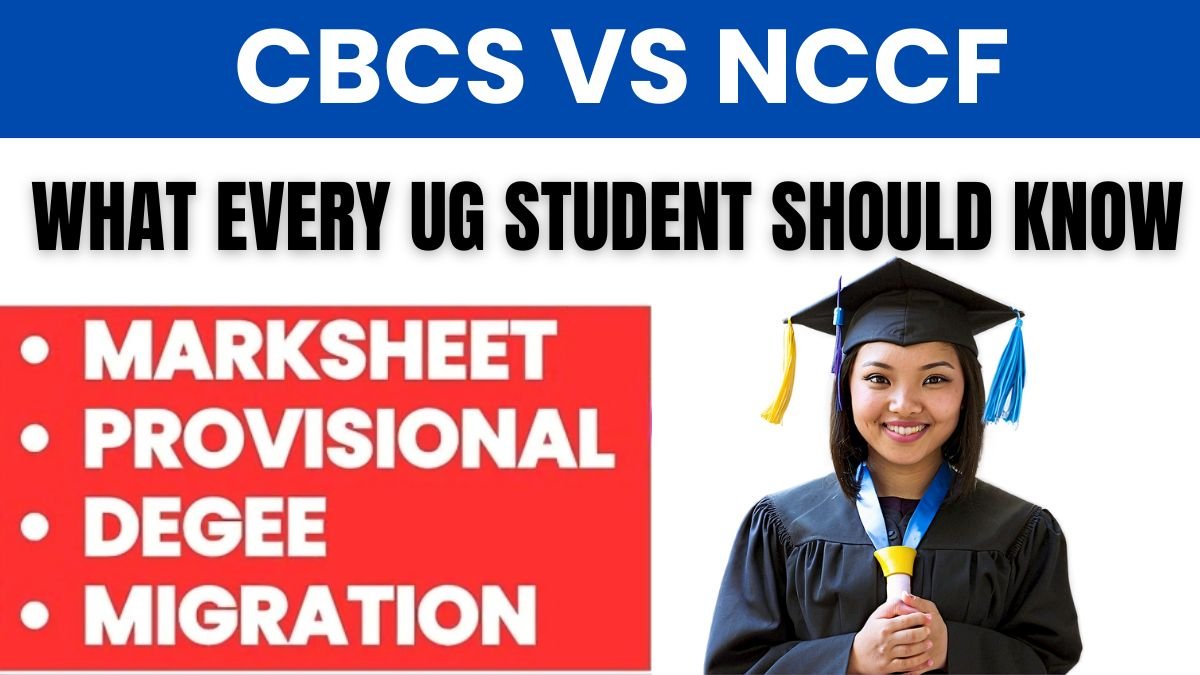If you are just going to take admission in graduation or are already doing UG course, then you must have heard two names – CBCS and NCrF. Both these words are very much discussed in the education system these days. But do you know the difference between them? Do you know which system can be better for your career?
What is CBCS? (Choice Based Credit System)
CBCS i.e. Choice Based Credit System is an education system in which students are given flexibility regarding their studies. In this, students get the freedom to choose subjects according to their interest and career plan. This system is slightly different from the traditional education system of India and is quite modern.
Features of CBCS:
- Freedom to choose flexible courses:
Suppose you are doing BA and you are interested in English literature as well as psychology and computers, then you can study all these subjects together. CBCS gives you this freedom. - Interdisciplinary learning:
You are a student of science stream, but you are also interested in economics or political science? No problem! Under CBCS you can also choose these subjects. This gives you a chance to develop an understanding of different fields. - Credit system and transfer facility:
In CBCS, every course or subject has a ‘credit’ value. When you complete a subject, you get credits for it. With the help of these credits, if you want to change college in between or want to go to another university, then it becomes very easy. - Emphasis on skill development:
Along with core subjects in CBCS, you also get a chance to study skill based courses like digital marketing, communication skills, personality development. This makes you better prepared for the job market. - Assessment in different ways:
Not only theory papers give you marks, but you are also evaluated through activities like presentation, project, case study and group work. This gives a complete assessment of your performance. - International recognition:
CBCS’s credit system matches the international level education system. If you are thinking of studying abroad, then these credits can be useful for you there too.
What is NCrF? (National Credit Framework)
Now let’s talk about NCrF. This is a new and multi-dimensional system introduced by the Government of India in 2022. Its aim is to combine education, skills and experience together so that students can be developed holistically.
NCrF is not limited to classroom learning, but it also adds activities like internship, training, research, apprenticeship and skill development to your credit score.
Benefits of NCrF:
- Balance of theory + practical knowledge:
Under this system, not only bookish knowledge is given, but all the skills you learn – like computer courses, training, workshops – are all evaluated. - Flexible learning:
Suppose a student does a part-time job along with studies or is taking training on any technical skill – then those experiences can also be converted into credits. This creates a better balance between studies and work. - Promotion of lifelong learning:
In NCrF, students can start studying anytime and can continue from anywhere. This means that if you want to start studying again after a few years, the credits of the skill or course you have done earlier will remain valid. - Emphasis on employability and entrepreneurship:
NCrF includes many skill-based activities so that you not only become capable of getting a job, but can also start your own work.
What is the difference between CBCS and NCrF?
| Points | CBCS | NCrF |
|---|---|---|
| Objectives | Freedom to choose subjects | Integrating education, skills and experience |
| How credits are earned | Study after each course and exam | Skill training, internships etc. |
| Who benefits | Students who want variety in subjects | Students who want to learn from skills and experience |
| Focus | Academic learning | Academic + work based learning |
| Assessment | Exams, projects, assignments | Based on skill level, training, experience |
What should students do?
If you are going to college and wondering which system is best for you, you should decide by looking at your interests and career goals.
If you want to study in depth in a subject and make a career in it, then CBCS is good for you.
If you want to learn skills, gain practical knowledge, or are thinking of starting your own business in the future – then NCrF will give you more benefits.
Conclusion:
Both CBCS and NCrF are excellent systems introduced under the New Education Policy (NEP 2020) that allow students to study with more freedom, understanding and skills. Neither of these systems is better or worse – both have their advantages. You just need to understand yourself and choose the right path according to your goal.
So the next time you choose a course or college, consider these Be sure to think about both systems – only then will your future and career become strong!

Aryan Jain writes easy-to-understand posts on college admissions and career tips. He loves helping students find the right path and make smart choices for their future.
